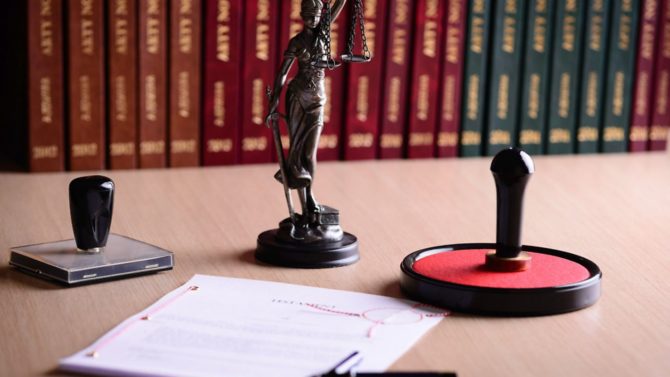Power of attorney in France explained

If you want to give someone the power to act on your behalf in France, whether to sign your property purchase documents or if you lose mental capacity, you’ll need to apply for the French equivalent of power of attorney
Dan Harris is Head of International and Cross-Border at Stone King LLP
A French power of attorney (called a procuration) allows us to give a third party the authority to act on our behalf and manage our financial and personal affairs. The transactions are primarily financial in nature and typically involve giving the power to a notaire (or their clerk) to execute deeds, allowing transactions, such as the sale or purchase of real estate to take place in our absence.
They can also include nominating a person to act on our behalf should we lose mental capacity. In France this document is called a mandat de protection future.
What is a mandat de protection future and how can I make one?
A mandat de protection future allows each of us (the ‘donor’) to nominate a person (the ‘attorney’) to manage our affairs after we have lost (or are losing) mental capacity. The nominated ‘attorney’ can be a friend or family member, or a professional. Technically it is possible to draw up a mandat de protection future at home without legal advice, but these are more limited in scope than a mandat made before a French notaire. For example, a mandat executed before a notaire can potentially allow your attorney to have the power to buy and sell assets, whereas if your attorney needs to take these actions under a ‘home-made’ mandat, the attorney would need the approval of the court.
________________________________________________________________________________________
Don’t miss
The legal process of buying a French property
Everything you need to know about making a French will
________________________________________________________________________________________
Is there an English equivalent of a mandat de protection future?
In England, each of us can execute a ‘lasting power of attorney’ (LPA) which gives someone appointed by us the authority to make decisions about our assets and/or well-being. An LPA is primarily intended to be used where we have lost mental capacity, but if we agree (and if the power is registered beforehand) the attorney can use it to help us when we still have mental capacity.
Does that mean a mandat de protection future is the same as an English lasting power of attorney?
No. They are the closest equivalent, but they are legally very different. The rules applicable to each document, including the extent of the powers and the way they are activated, are very different and individuals relying upon the documents should take advice, particularly if they are thinking of using the documents to make important decisions.
Can I make an lasting power of attorney or a mandat de protection future after I have lost mental capacity?
No, it is only possible to execute an lasting power of attorney or a mandat if you have the mental capacity to do so. If a person has lost mental capacity, a (much more complicated and expensive) court application will be necessary to appoint someone to act on your behalf.
Will a mandat de protection future be valid after a person has died?
In some jurisdictions, powers of attorney continue to be effective after a person has died, but this is not the case with a mandat de protection future or an LPA. Both documents cease to be effective after a person has died.
________________________________________________________________________________________
Don’t miss
French property buying contracts: a brief guide
I wish I’d known that before buying my French property
________________________________________________________________________________________
Can an attorney use a mandat de protection future or an English lasting power of attorney to make gifts of my assets?
The short answer in both cases is no. Attorneys both under the French and English rules require the authorisation of the court, even if the attorney believes that you would have made the gift and even if the attorney will inherit your assets.
If I have made a mandat or an LPA, does that mean I can no longer make my own decisions?
Again, no. As long as you have the mental capacity to make your own decisions, your wishes always have priority over those of your chosen attorney’s.
Can I execute a French mandat de protection future in the UK?
It has been suggested in some circles that it may be possible to give permission (via a standard power of attorney) to a notaire in France to execute a mandat de protection future on your behalf. In practice, your mental capacity would need to be assessed under French law for the mandat to have authority, and this cannot be done remotely. In fact, your mental capacity can only be assessed by an approved French doctor.
Can I execute simple French powers of attorney in the UK, and how?
Yes, you can execute standard French powers of attorney in the UK and these are commonly used in conveyancing transactions. Standard powers of attorney can be witnessed by English solicitors and notaries public. In order to be ‘internationally valid’, the credentials of the witness usually need to be certified by the Foreign and Commonwealth Office with an official document called an ‘apostille’.
________________________________________________________________________________________
Don’t miss
New European inheritance laws exaplined
All you need to know about French matrimonial regimes before buying a property
________________________________________________________________________________________
What exactly is an apostille?
An apostille is a certificate that makes ‘local’ documents valid for international use. You may hear people referring to the ‘legalisation of documents’. This ‘legalisation’ is the certification of the document with an apostille. Apostilles are only valid in jurisdictions that have adopted the provisions of the Hague Convention on the mutual recognition of documents, which includes the UK and France.
In essence an apostille is a certificate, sometimes a stamp, which is attached to a document (such as a power of attorney) by the ‘local’ court in France or the Foreign and Commonwealth Office (FCO) in the UK. The apostille authenticates the identity of the person certifying or witnessing the document, it does not change the nature of the document itself.
An apostille can be obtained on the signature of a solicitor or barrister as well as a notary public. Often French notaires will prefer the signature of a UK notary public, even though, strictly speaking, this is seldom required.
In France apostilles are often free, whereas in the UK there is a charge levied by the FCO, and your legal advisor will also charge for their time. As French notaires often do not realise there is a charge in the UK they will usually ask for an apostille on each document, which can become expensive if several documents need to be legalised at the same time. As an apostille authenticates the signature of the professional, to save costs, you can ask your notaire to accept just one apostille on the grounds that the signatures on all of the accompanying documents are the same.
Can I use my English lasting power of attorney in France?
Although an LPA should technically be valid and recognised in France, there are legal and cultural differences and you may also struggle to convince a bank, investment house or even a notaire in rural France to recognise an English LPA, in the same way that you would struggle to convince an English high-street bank to accept a mandat de protection future. Our advice is that it is best to have LPAs for your UK assets and mandats for your French assets.
Can my attorney charge for their services?
Only professional attorneys who act as attorneys in the normal course of their profession can usually charge for their services. Even then, this must be clearly agreed beforehand. However, both professional and non-professional attorneys can reclaim reasonable expenses incurred in the performance of their duties, for example, if they need to recover costs of travel to see the donor.
What happens if I do not have an LPA or a mandat?
If you do not have an LPA or a mandat, the person who is trying to manage your affairs will have to go to the French courts or (in the UK) the Court of Protection to make alternative arrangements. This tends to be more expensive and involves considerably more work than the mandat/LPA procedures.
Don’t miss
12 things you should know about buying a French property
Share to: Facebook Twitter LinkedIn Email


